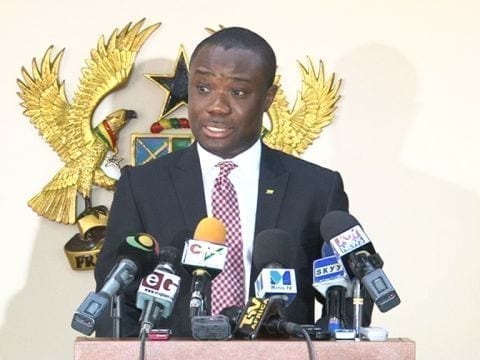Paragraph 1: Setting the Stage – A Commitment to Lean Governance
Felix Kwakye Ofosu, Ghana’s Minister of State for Government Communication, has forcefully reiterated President John Dramani Mahama’s commitment to fiscal prudence and efficient governance through a significant reduction in the size of the presidential staff. This commitment centers on maintaining a considerably smaller number of political appointees at the presidency compared to the previous administration of former President Nana Akufo-Addo. Kwakye Ofosu’s statements underscore a deliberate strategy by the Mahama administration to streamline government operations, reduce public expenditure, and enhance overall efficiency by minimizing the bureaucratic footprint of the presidency. This emphasis on a "lean government" reflects a broader policy direction aimed at optimizing resource allocation and ensuring that public funds are utilized effectively.
Paragraph 2: A Stark Contrast in Numbers – The Akufo-Addo Era vs. The Mahama Approach
Kwakye Ofosu, during an appearance on Channel One TV’s "The Point of View," highlighted the stark contrast between the current administration’s approach to presidential staffing and the practices of the previous government. He pointedly stated that the Akufo-Addo administration had a staggering 336 political appointees at the presidency. In contrast, the Mahama administration, he asserted, currently maintains no more than 50 such appointees. This represents a drastic reduction of over 85% in the number of political positions at the presidency. This dramatic downsizing serves as a clear indicator of the Mahama administration’s commitment to trimming the size and cost of government.
Paragraph 3: A Firm Cap on Presidential Appointees – Ensuring Fiscal Responsibility
The Mahama administration’s commitment to a leaner government extends beyond mere rhetoric. Kwakye Ofosu emphasized that the number of presidential appointees will be strictly controlled and will not approach the levels seen during the Akufo-Addo era. He assured the public that there would be "serious cutting of numbers" to ensure that the size of the presidential staff remains within "reasonable limits." This firm commitment to capping the number of appointees demonstrates a proactive approach to managing public resources and preventing unnecessary expansion of the presidential bureaucracy. It signifies a conscious effort to avoid the perceived excesses of the previous administration and to maintain a fiscally responsible approach to governance.
Paragraph 4: Addressing Ministerial Appointments – Justifying a Smaller Cabinet
Beyond the presidential staff, the Mahama administration’s commitment to streamlining government operations also extends to the composition of the cabinet. Kwakye Ofosu addressed concerns regarding ministerial appointments, questioning the rationale behind the previous administration’s decision to appoint over 100 ministers. He defended President Mahama’s decision to limit the number of ministerial positions to 60, arguing that this reduction is essential for achieving greater efficiency and reducing government expenditure. This move reflects a deliberate effort to optimize the structure of government and ensure that ministerial portfolios are managed effectively without unnecessary duplication or overlap.
Paragraph 5: A Final Decision – No Reconsideration on Ministerial Cap
Kwakye Ofosu firmly dismissed calls for President Mahama to reconsider the cap on ministerial appointments. He emphasized that the decision is final and reflects a fundamental principle of the administration’s approach to governance – a commitment to fiscal responsibility and efficient resource allocation. This unwavering stance indicates the administration’s resolve to implement its policy of streamlining government and resisting pressures to expand the cabinet beyond what it deems necessary. The message is clear: the Mahama administration is prioritizing efficiency and cost-effectiveness in its approach to governance.
Paragraph 6: The Broader Strategy – Efficiency and Reduced Expenditure
The decision to limit both presidential staff and ministerial appointments forms part of a broader strategy by the Mahama administration to reduce government expenditure and enhance the overall efficiency of government operations. By trimming the size of the bureaucracy, the administration aims to free up resources for other critical areas such as infrastructure development, social programs, and economic growth initiatives. This strategic approach reflects a commitment to optimizing the use of public funds and ensuring that government resources are directed towards areas that will have the greatest impact on the lives of Ghanaian citizens. The emphasis on a leaner, more efficient government underscores the administration’s commitment to delivering tangible results and maximizing the value of public resources.


